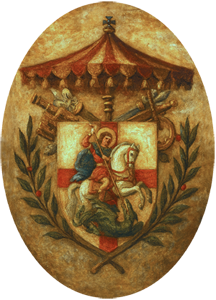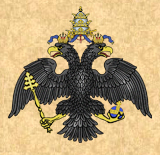|
PONTIFICIVM COLLEGIVM
GEORGIANVM
The
principal theological seminary of the United Roman-Ruthenian Church
CANON
LAW OUTLINE OF STUDIES
N.b.
programmes subject to change without notice on this page. Postulants
and seminarians should consult college administration for official information.
Each priest studies canon law as part of clerical formation in the Licentiate of Sacred Theology programme. Some clerics and, less frequently, laymen choose to pursue advanced study in canon law to help serve the mission of the Patriarchate as canon lawyers and judges on Tribunals. The following outline is of the standard coruse of study for the Licentiate of Canon Law (JCL) and the Doctorate of Canon Law (JCD). It is expected that candidates for the JCL will have an earned, accredited bachelor's degree or equivalent in a related field and will typically already have a graduate degree and some type ot theology degree. While each level is analogous to a semester, each student moves at his own appropriate pace, under the guidance of his programme director. The Code of Canon Law and the Code of Particular Canon Law are considered obligatory texts for each course. Additions texts, papers, and other readings may be assigned.
CANON LEVEL 1 CL601 - History of Canon Law CL602 - General Norms of Law CL603 - Particular Churches CL604 - Laws of the Sacraments
CANON LEVEL 2 CL611 - General Norms of Law II CL612 - The Ministry of Holy Orders CL613 - Canons of Holy Matrimony CL614 - The Work of the Laity
CANON LEVEL 3
CL621 - Canons of the Consecrated Life CL622 - Canon Law in Civil Society CL623 - Procedures of Canon Law CL810 - Elective
CANON LEVEL 4
CL631 - The Temporal Goods of the Church CL632 - Ecclesiastical Structure CL633 - Tribunal Procedural Structure CL634 - Defense of Rights in Church and Society
CANON LEVEL 5
CL641 - Defending Religious Freedom in Society CL642 - Canons of Magisterial Authority of the Church CL643 - Sanctions CL840 - Elective
CANON LEVEL 6
CL651 - Theology of Canon Law CL652 - Law of the Roman Church CL653 - Law of the English Church THESIS Beginning during Level 5 or 6, the candidate must write a thesis on a relevant topic of canon law approved by his programme director.
DISSERTATION An admitted candidate for the degree of Doctor of Canon Law must first complete the requirements for the the Licentiate of Canon Law. A topic of original research relevant to canon law is proposed to the programme director and committee. The candidate then carries out the research and writes a dissertation. Upon successful defense of the dissertation to the committee, the candidate is proposed to the Great Officers of the College for award of the degree of Doctor of Canon Law.
[Pontifical Georgian College Main Page]
|

